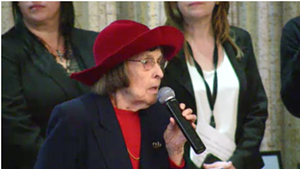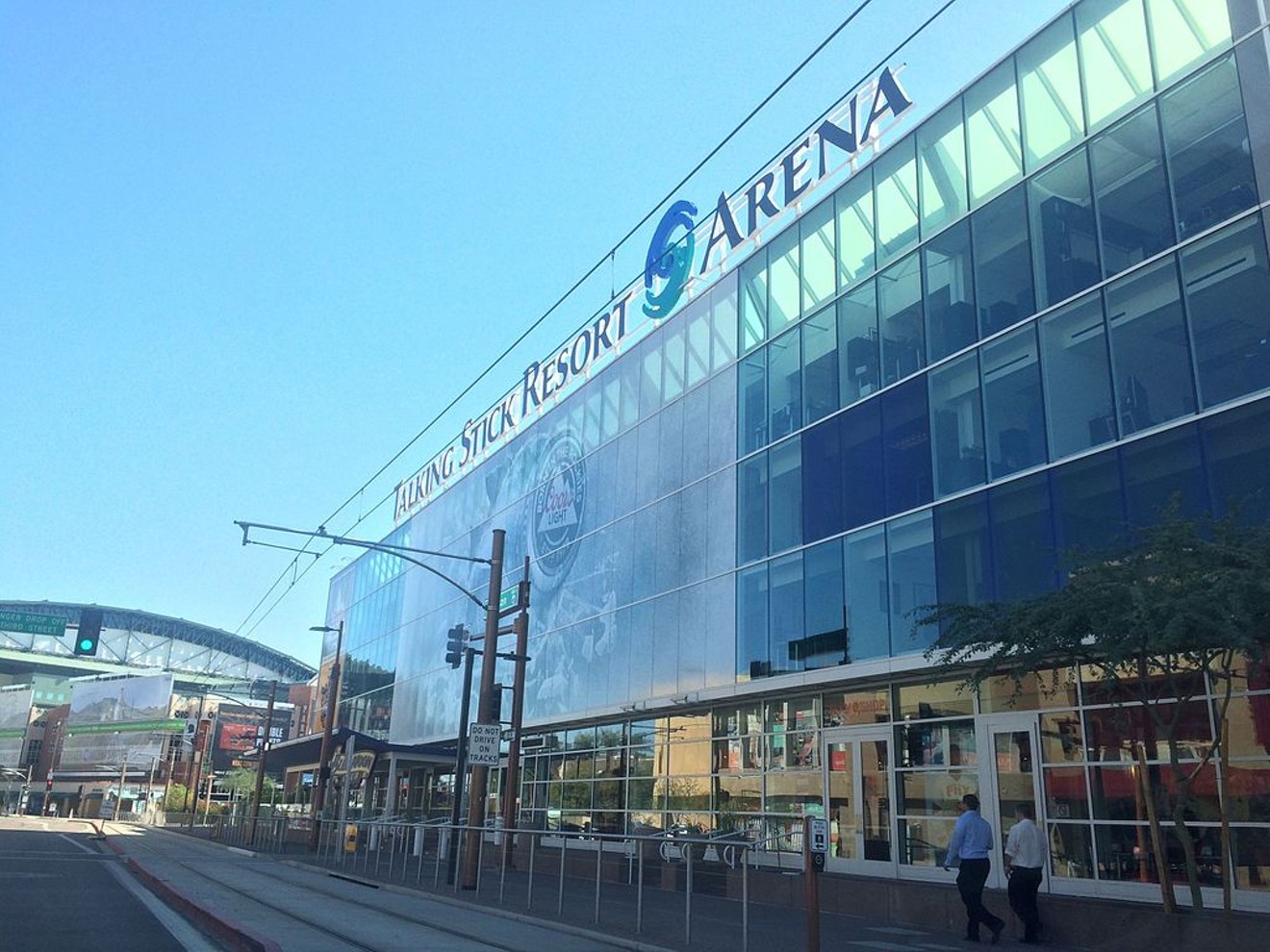Voting for the deal were Thelda Williams, the interim mayor, and council members Debra Stark, Felicita Mendoza, Vania Guevara, Laura Pastor, and Michael Nowakowski. Sal DiCiccio and Jim Waring voted against it. Guevara was initially against it, but changed her mind.
The vote was no slam dunk. On the surface, it was about a sports arena where the Phoenix Suns play, and about the city's efforts to attract and retain business. On a deeper level, many saw it as a referendum on Phoenix's priorities, and on which people and communities in Phoenix most deserve to be taken care of.
"I see signs that say, 'Invest in Downtown,'" said one rumpled and bearded man during the council meeting's public comment period. "Phoenix is more than just downtown. It's neighborhoods, and there are neighborhoods and pockets of despair here."
The man's comments in opposition to the stadium were sandwiched between those of businessmen who came with prepared statements and sports jerseys, telling the city council that it needed the Suns for a vibrant downtown.
Greta Rogers, 90, who comes to nearly every city council meeting and made national headlines last month for tearing into the council, said she didn't harbor disaffection for the Suns. Rather, she opposed the way the deal had begun.

The famous Greta Rogers, who attends — and comments during — nearly every city council meeting.
City of Phoenix screenshot
According to the city's breakdown of costs, Phoenix will pay $150 million up front for the renovation and commit another $25 million for future repairs. The Suns will pay $80 million up front, plus any cost overruns. The city will also put $25 million to $50 million on a new practice arena somewhere in the Phoenix area, and $12.5 million for future repairs.
Phoenix will obtain the money from its Sports Facilities Fund, which is funded by an existing 1 percent tax on hotel rooms and 2 percent on rental cars, Chris Mackay, the city's community and economic development director, told the city council. She said that 93 percent of the rental-car tax revenues and 88 percent of the hotel tax revenues come from outside Arizona.
Opponents of the deal saw unnecessary and excessive government spending for the NBA team with the worst record in the Western Conference and one very wealthy owner, Robert Sarver, who is worth $400 million.
Instead, they said, the money should go to affordable housing, parks, other public resources, and to people who really need it. They disputed the city's argument that the renovations were necessary to keep the Suns in Phoenix.
Although the deal ultimately passed, it remains a study in how not to present expensive, taxpayer-funded ideas to the public.
When the city announced it on Thursday, December 6, 2018, the proposal emerged seemingly out of nowhere, less than a week before the council was scheduled to vote on it the following Wednesday. To many observers, it looked like the city, backed by the Suns, was trying to rush the proposal through, public opinion be damned.
Facing backlash over the size of the deal, the short time-frame for the public to make sense of the proposal, and growing debate over whether the deal made sense at all, the council in December pushed its vote back to January.
From there, the city held five public meetings to solicit feedback from the community and, ostensibly, "educate" them. Some council members, like Williams, also showed up at these meetings and stumped for the deal. The city estimated that some 300 people attended.
Yet it wasn't until last week, a day after the last public meeting, that a breakdown of the costs came out, at $5 million more than the original estimate. The city says its contributions would be capped at $150 million, with the Suns covering overruns.
Looking at what the city believes is at stake in the deal sheds some light on (but doesn't quite justify) why they've pushed so hard for it.
The city owns the the stadium for the Phoenix Suns, and it wants these renovations, in part, so that Talking Stick Resort Arena doesn't fall behind.
"The City-owned facility is among the smallest and is now the oldest NBA arena that is not in the process of being replaced or significantly refurbished," the city's report to City Council says.
The city also wants to keep the Suns, which pays rent to the city, in Phoenix. Part of the new deal will include the team staying in the city until 2037, with the option of adding another five years after that.
Economic research suggests the impact from sports arena on the surrounding economy is minimal.











